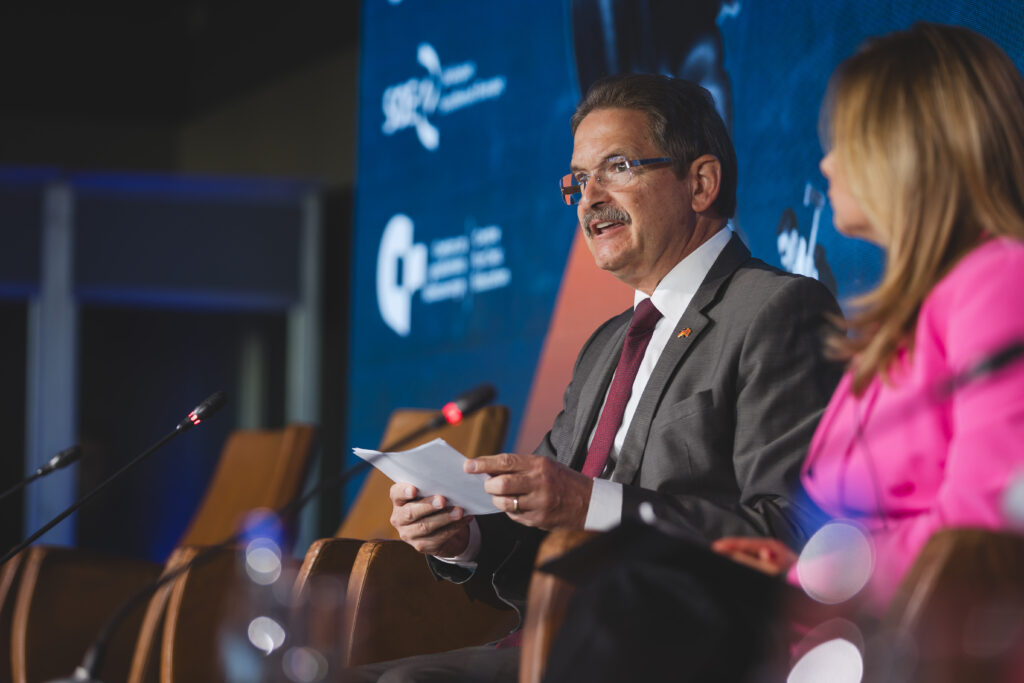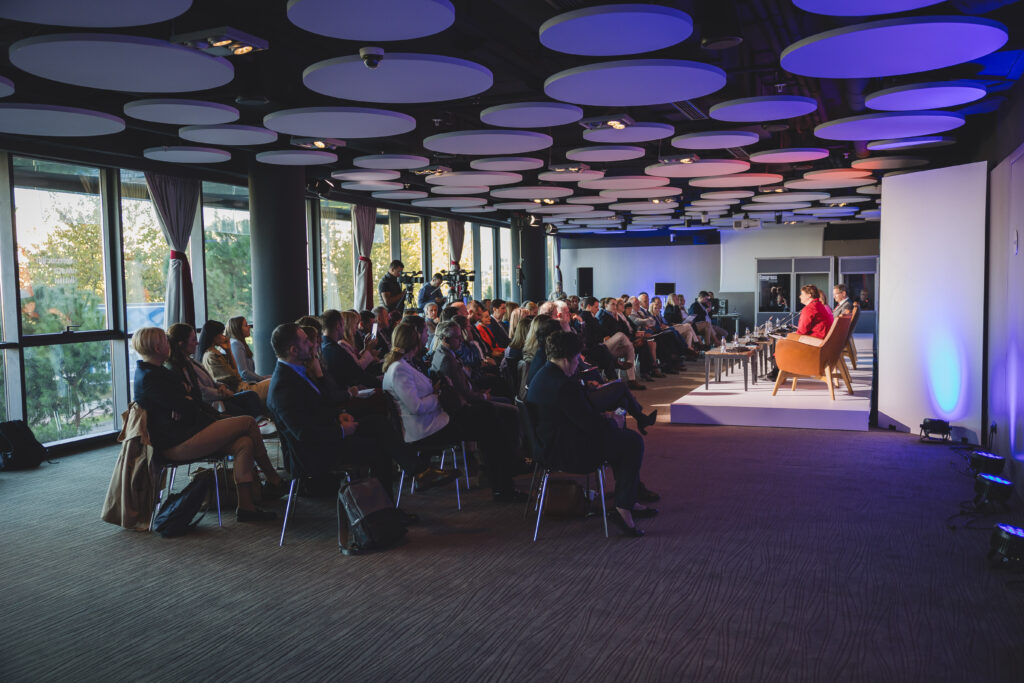Investments in rule of law are investments in the European future of the Western Balkans, which should be marked by freedom, prosperity, and a high quality of life, according to statements made at the regional conference on rule of law in the Western Balkans organized by the Centre for Civic Education (CCE) and the German Friedrich Ebert Stiftung (FES).
Germany’s Ambassador to Montenegro, Peter Felten, emphasized that in the EU accession process, the rule of law rightly plays a central role, explaining that many reforms cannot be effective unless this area functions properly.
“Economic prosperity in Montenegro and the Western Balkan can only be achieved on the basis of a functional rule of law. In my view, to improve the rule of law across these countries, there must be a focus on justice and equality as pillars of democracy. Therefore, Germany, along with other EU member states and Union institutions, places great importance on this issue,” Felten stated.
“In a state without the rule of law, there is no social justice, nor is there the use of public resources in the interest of a society as a whole. No one wants to invest money in the long term if they are not absolutely sure that the state-provided frameworks are stable,” Felten said, stressing that rule of law is essential for the fair development of every society and state.
Felten also noted the challenges in this area, which is why Germany supports Western Balkan countries in initiatives aimed at strengthening the judiciary and rule of law, as well as civil society.
“Investing in rule of law is an investment in the European future of the Western Balkans, that should be marked by freedom, prosperity, and a quality of life. Rule of law is also fundamental for implementing European values in practice,” Felten added.
Reflecting on the latest European Commission (EC) report on Montenegro, he pointed out that there were positive steps taken last year in the area of judiciary and fundamental rights, though further efforts are required in some areas, with the EC providing concrete recommendations.
Felten emphasized that the presumption of innocence applies until a judgment is final. “This principle is extremely important, and politicians and media must adhere to it,” he said.
Director of the FES Regional Office for Serbia and Montenegro, Kirsten Schoenfeld, noted that the rule of law is an issue of democracy that affects all citizens.
“It is about the fundamental right to a good and quality life, and ensuring social justice. It is also a guarantee of peace, achieved without violence, making the strengthening of rule of law across all countries in the region even more important,” Schoenfeld added.
Commenting on the annual EC reports on the region, Schönefeld stated that some Western Balkan countries have made certain strides while others have not. “Despite progress, there is still much to be done,” she noted.
CCE Executive Director, Daliborka Uljarević, pointed out a certain paradox. “The EU sends messages about progress made by all countries in the region on the EU path, with Montenegro even positioned as a frontrunner, especially after receiving a positive IBAR. However, the image of this European progress is tarnished by undeniable democratic regression, that we, who live in the region, witness daily,” Uljarević noted.
She added that civil society has the responsibility, albeit challenging and often unpopular, to influence deconstruction of dominant narratives that do not drive progress.
Uljarević emphasized that the genuine goal is not merely technical EU membership, but a transformed society that lives by democratic principles, upholds civic values, and ensures a functional rule of law, with membership in the Union as a culmination of this transformation
She pointed out that in Montenegro, poor practices can be seen in how those in power treat the legal and institutional order, and unfortunately still demonstrating that the same rules do not apply to them as they do to others. “And when caught in wrongdoing, the usual line of defense, apart from the clumsy attempts to dodge facts, is— that their predecessors did even worse things. This ‘defense’ is akin to a defendant claiming someone else committed more crimes,” Uljarević concluded.
MINA Agency



